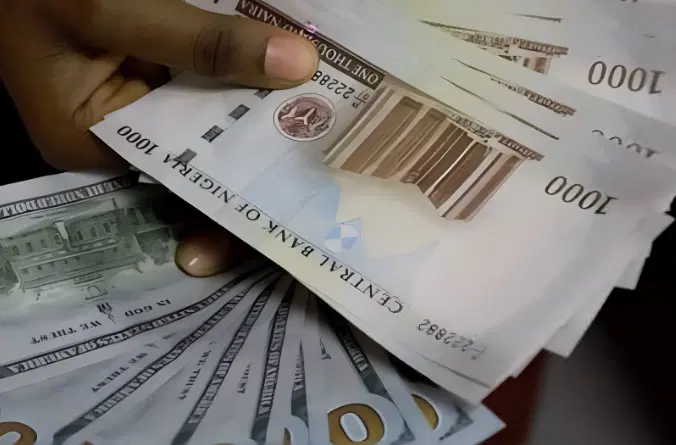The Nigerian Naira recorded a mixed performance on Tuesday, showing slight appreciation in the parallel market while depreciating further in the official foreign exchange market.
In the parallel market, the Naira strengthened, trading at N1,650 per dollar, a modest improvement from the N1,665 per dollar rate recorded on Monday. However, the situation was different in the official market, where the Naira slipped to N1,538 per dollar, compared to N1,534.56 per dollar the previous day.
According to data released by the Central Bank of Nigeria (CBN), this represents a N3.44 depreciation in the official Nigerian Foreign Exchange Market (NFEM), signaling continued pressure on the Naira in formal trading channels.
The contrasting movements in the parallel and official markets led to a narrowing of the exchange rate gap. The margin between the two rates reduced to N112 per dollar, down from N130.44 per dollar on Monday.
Implications for the Market
Market analysts note that the narrowing margin is indicative of fluctuating demand and supply dynamics across both markets. The appreciation in the parallel market could be attributed to reduced pressure from importers and traders, while the depreciation in the official market highlights persistent challenges in meeting foreign exchange demand within regulated channels.
Observers also point to the Central Bank’s ongoing efforts to unify exchange rates as a critical factor influencing market trends. However, achieving this goal remains a challenge amid limited forex inflows and high demand for dollars.
Looking Ahead
The forex market’s performance has heightened concerns among stakeholders about the broader implications for Nigeria’s economy. With the official rate edging closer to N1,540 per dollar, some analysts are calling for additional measures to stabilize the currency and attract more foreign investments.
Meanwhile, traders and businesses are advised to closely monitor market developments as the exchange rate volatility could impact import costs, pricing strategies, and overall economic planning.
The continued fluctuation in Nigeria’s forex market underscores the urgent need for a comprehensive strategy to address underlying factors driving the Naira’s instability.

